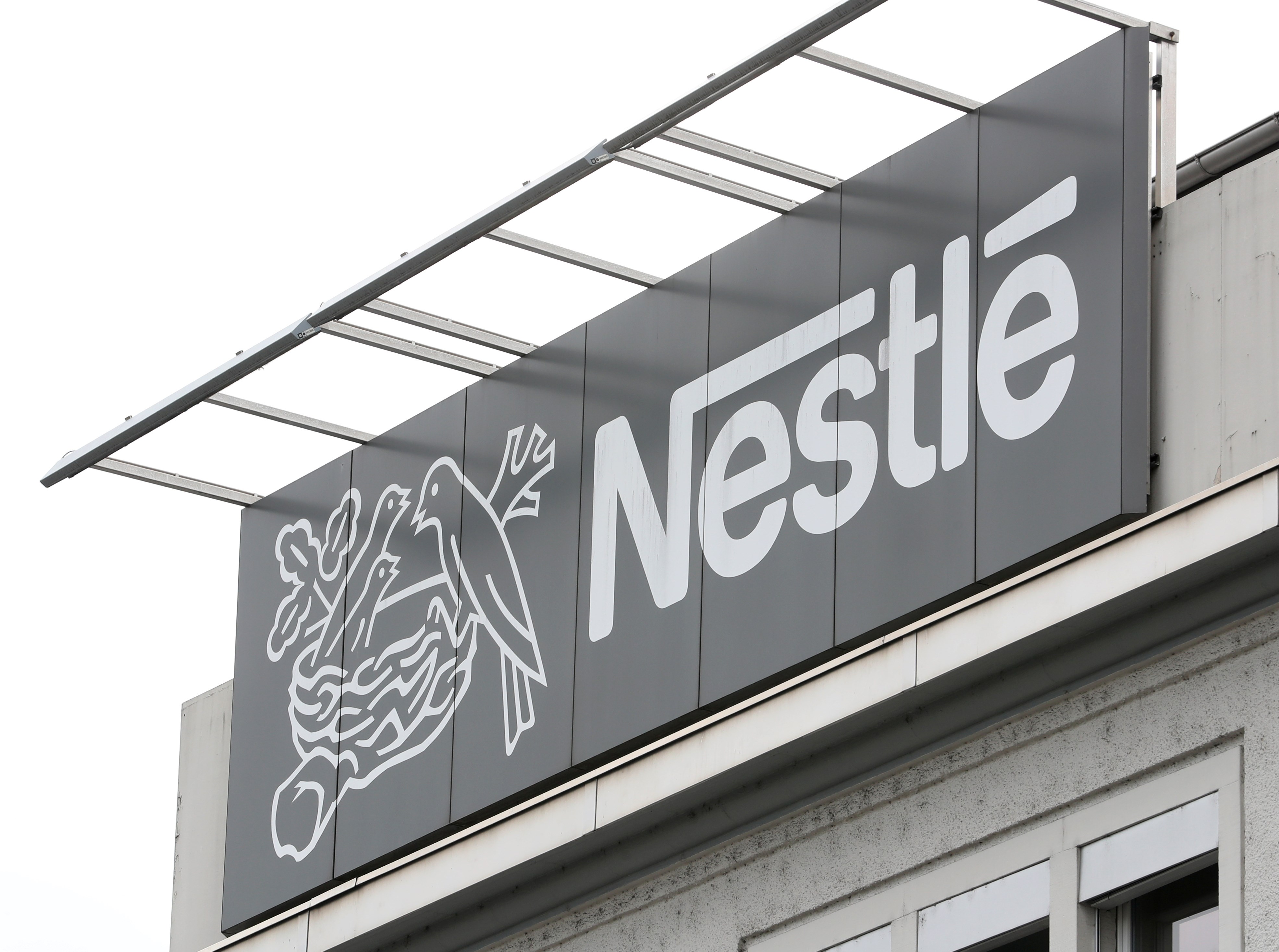Banned EU pesticides are exported to Brazil farms supplying Nestle
An investigation finds that carcinogenic pesticides are being sent to Brazil for farms supplying Nestle.
-

The company's logo is seen at a Nestle plant in Konolfingen, Switzerland on September 28, 2020. (Reuters)
An investigation by Lighthouse Reports and Repórter Brasil has found evidence that farms in Brazil supplying Nestle have been receiving banned pesticides linked to cancer from the EU.
The pesticides were prohibited from use in the EU for being linked to causing cancer, reproductive problems, and neurodegenerative diseases, but millions of pounds of the chemicals are being supplied instead to the international sugar market of Brazil.
Documents from the Brazilian agriculture ministry show that a fungicide based on the banned chemical, epoxiconazole, made by Germany-based chemical company BASF was used in two sugar plantations that supply Nestle - one being the giant Brazilian sugar corporation Copersucar, which sold €1 billion of sugar to Europe in 2020.
Epoxiconazole has been classed by the ECHA (European Chemicals Agency) as a suspected carcinogen.
Brazilian sugar plantation, Usina Atena, is under investigation as a result of a complaint about the health effects of the chemicals used on the farm, after which the Justice ministry found that Swiss-based Syngenta fungicide Priori Xtra was being used, which contains the banned cyproconazole.
UN special rapporteur on toxics and human rights, Marcos Orellana, called the continued export an “abhorrent practice” as he called on the EU to enforce a full ban on the chemicals.
CropLife International, a representative of the agri-chemical companies including BASF, Bayer and Syngenta, said that “valid use registrations" applied for the active ingredients in "several OECD countries”.
Read next: Bee-harming pesticide use given emergency authorization in UK
It added, “A non-registration or deregistration in the European Union does not automatically mean a product cannot be used in another country. Pesticides are not automatically ‘more hazardous’ or ‘less necessary’ because they are not authorized in Europe.”
In response, Bayer and BASF stand by their word that all their products are environment-safe and human-safe.
A Nestlé spokesperson said that Nestlé’s responsible sourcing standard must be met by all suppliers. “We continue to closely follow regulatory developments everywhere we operate to ensure full compliance for all our products. Nestlé is not involved in campaigning against an export ban on pesticides and active ingredients banned in the EU," they said.
Officials at the EU body responsible for regulating pesticides, DGSante, claimed that the export of banned pesticides would be discussed in line with the chemicals strategy for sustainability, but no timetable had been set for implementation.

 3 Min Read
3 Min Read










